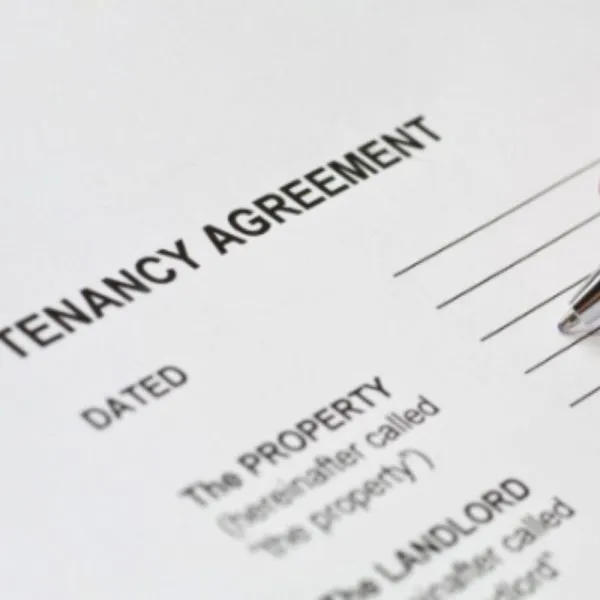You’ve done everything right.
You served valid notice, followed the court process, and secured a possession order. But instead of regaining control of your property, you’re told to wait another 6–12 weeks for a bailiff appointment.
In 2025, that’s the reality for many landlords relying on county court enforcement.
With bailiff shortages and growing backlogs, even a successful court order can leave you stuck, bleeding rent and wasting time.
The solution? Transfer your order to the High Court.
At Helpland, we help landlords fast-track evictions by converting possession orders into writs of possession, enforceable by High Court officers who move faster, act decisively, and restore control, when it matters most.
Why Bailiff Delays Are Crippling Landlords
County court bailiffs are facing national shortages, with resources stretched across the board. Many landlords are experiencing long enforcement timelines even after a judge has ruled in their favour.
You might wait two to three months, sometimes more, just to have someone knock on the door and enforce the order. Meanwhile, your tenant remains in the property, rent-free, while costs stack up.
These aren’t just operational headaches. They’re real financial setbacks:
Void periods drag on. Mortgage payments continue. And properties are often left at risk of further damage or unpaid arrears.
That’s why legal advisers and landlord associations like the NRLA are now recommending landlords consider the High Court route, a faster, more efficient alternative to traditional enforcement.
What Does It Mean to “Transfer Up” an Order?
When you “transfer up” a county court possession order, you’re asking for permission to enforce it through the High Court instead. If granted, the court issues a writ of possession, which is executed by a High Court Enforcement Officer (HCEO) rather than a standard bailiff.
This isn’t a legal shortcut. It’s a legitimate, court-approved process, one that’s gaining traction among experienced landlords who don’t want enforcement delayed by a broken system.
You can apply for transfer after your possession order is granted, using a formal leave application known as Form N244. Once approved, the HCEO is authorised to carry out the eviction, typically much faster than the county route allows.
Are Tenants Given Notice?
Yes. Despite what some landlords assume, High Court enforcement isn’t a secretive or sudden knock on the door. Tenants must receive a seven-day enforcement notice before any action is taken, ensuring transparency and compliance with Civil Procedure Rules.
In many cases, this notice is enough to prompt voluntary departure, no confrontation needed, no delays endured. It’s a cleaner, faster exit that protects everyone’s rights, while still moving decisively in the landlord’s favour.
Is It Worth the Cost?
This is the question every landlord asks, and rightly so.
High Court enforcement does carry higher upfront fees than county bailiff action. But the return on speed and certainty is often far more valuable. A quicker eviction means earlier re-letting, less exposure to ongoing arrears, and lower risk of property damage.
More importantly, the costs of enforcement, including the writ itself, are often added to the tenant’s outstanding debt under the possession order. That means you’re not just acting faster, you’re recovering more too.
From a financial and operational perspective, it’s a move that protects your cash flow, limits long-term losses, and ensures the eviction process doesn’t stall at the final hurdle.
How Helpland Manages the Fast-Track Route for You
Applying to transfer a case to the High Court involves more than just filling out a form. You need to present a valid case for why county court enforcement isn’t sufficient, prepare the paperwork properly, and coordinate the transfer with the High Court Enforcement Officer.
That’s exactly where Helpland comes in.
We manage the entire process, from preparing and filing your N244 leave application, to securing the writ of possession, to ensuring correct tenant notification and scheduling of enforcement. Our legal team handles all communication with the court and the enforcement team, providing you with regular updates and one fixed fee.
For landlords who’ve waited long enough, this isn’t just legal support. It’s a path to results.
FAQs: What Landlords Are Asking Right Now
1. How long are county-court bailiff waits in 2025?
In most areas, delays range from 6 to 12 weeks. Some landlords report even longer.
2. What does “transfer up” cost?
Fees typically range between £300 and £700, depending on location and urgency. Some or all of these costs may be added to the tenant’s debt.
3. Can I apply for High Court enforcement once I have a possession order?
Yes, but only after the possession order is granted. You’ll need to apply for permission to transfer using Form N244.
4. Are tenants notified before eviction by a High Court Officer?
Yes. They must receive at least seven days’ notice under enforcement rules, unless the court grants an exception.
5. How does Helpland manage the paperwork?
We handle the entire process: preparing the application, liaising with the court and HCEO, and ensuring compliance throughout.
Final Word: Get Your Property Back Sooner
Delays in eviction don’t just cause frustration, they cost money. Whether it’s unpaid rent, legal exposure, or lost re-letting time, landlords are the ones footing the bill while the court system drags on.
Helpland helps you avoid that.
Our High Court enforcement service gives landlords a faster route to possession, handled with precision and professionalism. We do the paperwork. We manage the process. We bring results, not more waiting.
Book your fast-track eviction consultation today.
Let’s get your property back on your terms.



.png)

